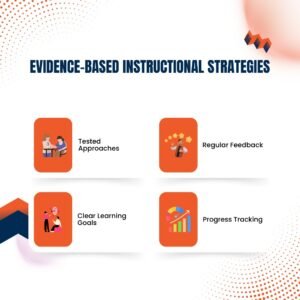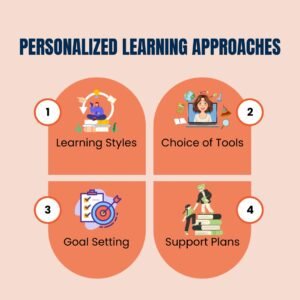At Resilient Foundation, we always try to make learning better for everyone. But today, old teaching styles are not enough. The world is changing, so we need new ways to teach. That’s why research and development are very helpful. It helps us find out which methods work best. With good research, we can plan better lessons and help more students. We use new ideas in our classes, online workshops, and training programs. If we follow the right way, students can learn faster and enjoy learning more. Also, using a strong research methodology helps us understand what students need and how we can support them in a better way.
Understanding the 5 Research and Development Techniques
Learning becomes better when we use the right techniques. We use five smart research and development techniques to help students and teachers. These techniques are not just ideas; they are based on real facts and proper research methodology. We use them in our online workshops and training programs to help people learn faster and understand more clearly. These methods solve problems and make learning simple. We want every learner to feel happy and confident. Therefore, let’s learn about these five strong techniques that improve how people learn every day.
Evidence-Based Instructional Strategies

- Tested Approaches: We use teaching methods that have already worked for many students. These methods are not random. They are built using content analysis in research. So, we know they will help again.
- Regular Feedback: This not only helps students but also gives researchers valuable insights into how learning happens. That’s why we tell them quickly what is right or wrong. It helps them fix mistakes. We include this in our training programs.
- Clear Learning Goals: Each lesson must have a clear goal. When students know what they will learn, they stay focused. We use analytical research to set the best learning goals.
- Progress Tracking: Teachers check how students are doing; moreover, they use simple tools to see who needs more help. In addition, this is part of our research and development method.
Collaborative Learning Environments

- Group Discussions: We ask students to talk in small groups. Consequently, this helps them share ideas and learn from others. Furthermore, it also builds confidence. Moreover, these group talks are part of our training programs.
- Project-Based Tasks: Students work in teams on tasks. Moreover, these tasks are real and fun. Consequently, they learn to think clearly and. solve problems using analytical research
- Shared Resources: We guide students to share notes and helpful links. In our online workshops, this helps everyone learn more easily. We follow content analysis in research to choose the right materials.
- Learning Circles: Students form small groups and meet often. In addition, they talk about lessons and help each other. Moreover, these circles are a simple but strong part of our research and development method.
Technology-Enhanced Learning
- Interactive Lessons: We want every learner to feel happy and confident. Therefore, let’s learn about these five strong techniques that improve how people learn every day.
- Online Platforms: Our online workshops use smart online tools. Additionally, these platforms are easy to use and help students learn anytime, from anywhere.
- Video Learning: Videos explain things in simple ways. Therefore, we add short videos to our training programs so that students understand topics better and faster.
- Digital Feedback: Students get feedback through apps and forms. Consequently, they learn what they did right or wrong very fast. This, in turn, is based on analytical research.
Personalized Learning Approaches
- Learning Styles: Every student is different. Some like reading, others like videos. Our training programs match their style. This helps them learn in their own way using research and development.
- Choice of Tools: We give students options. Specifically, they can use videos, quizzes, or reading guides. Moreover, they learn better when they use tools they like. Therefore, we follow research methodology to choose the best tools.
- Goal Setting: Students set small goals for learning. They check progress step by step. This helps them stay focused. We use analytical research to guide this process.
- Support Plans: Some students need more help; therefore, we give them extra support. Moreover, these support plans are based on data from training programs and, in addition, real learning needs.
Conclusion
At Resilient Foundation, we work to make learning better for everyone. We use strong research and development to plan and create good lessons. Our online workshops and training programs are made with care and a clear research methodology. We want each student to grow with confidence.
With the help of analytical research and content analysis in research, we give every learner the right support and tools. We aim to help learners do well. If you want to learn better and grow faster, join Resilient Foundation’s online workshops today. Let’s make learning fun, easy, and useful for all.

